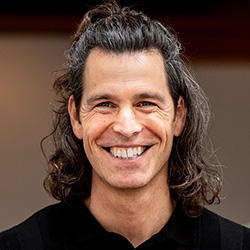

Search Results: needs
-
Trainer Tip: When there is conflict, the chances are good that people are arguing over a particular strategy. When we focus on our needs, the opportunities for peaceful resolution that values everyone’s needs are much greater. This can also build trust. Be aware of opportunities to shift focus from strategies to needs. Read on for an example of how this can work.
-
What are the most powerful things I can do to build an inspired relationship? I answered the question with romantic relationships in mind; however, I believe the answer below applies to all important relationships.
-
Trainer Tip: Sometimes we need to empathize with a person before he can hear our anger. Consider that all anger is an expression of an unmet need. If we focus on the need, rather than the actions, we are more likely to connect compassionately with other people. Be aware of opportunities to empathize with someone’s anger today.
-
Trainer Tip: Sometimes our actions keep us from meeting our needs. Let’s say you long for connection with others, but you are also afraid of it, so you push people away. Then you tell yourself that no one likes you, resulting in depression and self-criticism. Self-empathy can help clarify what we truly want rather than focusing on what is wrong with others or ourselves, and help us align in ways more likely to meet our needs.
-
For each reactive pattern there is a perceived threat to a tender need. Knowing these tender needs helps us figure out how to interrupt these patterns and creating new ways of perceiving and relating to life. In addition to knowing the need, knowing the healing response and the primary reactive behavior helps with transformation.
-
How can we live up to our true potential, a life filled with relationships and experiences that truly meet our needs? In this article, Mary offers us a way to bring about inner transformation that can lead to seeing ourselves, others and life differently -- for greater agency, empowerment and choice.
-
Sylvia teaches emotion management, connecting feelings to needs, and "Screaming in Giraffe."
-
Join CNVC Certified Trainer Arnina Kashtan as she examines the nature of guilt and how apologizing often fails to connect us to our needs.
-
In the "obnoxious stage" we care for our needs in a way that doesn't respect others' needs. In the "emotional liberation" stage we fully care for others' needs as much as our own—while being free of fear, guilt, shame, or obligation. Often NVC training teaches us how to achieve the latter stage without the former. For greater compassion we can be more rigorous in how we talk about “responsibility", impacts and interdependence.
-
How do you solve a conflict? By not trying to solve it! Yoram suggests building your conflict resolution muscles by practicing connecting to the needs behind the conflict instead. Check out this excerpt from Session 1 of his 2021 course, Connecting in Conflict and the Art of Navigating Dialogue. Listen.
-
Robert Gonzales shares how embracing impermanence involves continually growing in his ability to accept unmet needs, to be comfortable with discomfort and unwanted experiences. Robert shares a quote by Henry Wadsworth Longfellow about letting it rain, emphasizing the simplicity and wisdom in accepting life's experiences as they come.
-
- Learn concrete tools for engaging with others as you embrace individual and collective liberation
- Find your own source of choice even in the face of challenges
- Release the constriction of scarcity
- Find an empowered option to respond to what is happening in our world
- Open the door to the possibility of thriving rather than merely surviving
-
Ask the Trainer: Guidance for NVC groups on when and how to make requests, especially negative ones.
-
Conflict is a normal and natural part of life. To varying degrees, it happens whenever two or more people consistently spend time together. Resolving conflict effectively and peacefully, in a way in which all parties feel respected and valued, does not feel natural for those of us who grew up with punitive, adversarial, or avoidant approaches to conflict. Eric offers some tips for approaching conflict.
-
- Explore the spiritual foundations of NVC
- Witness transformational and healing processes led by Robert Gonzales
- Learn from the questions proposed by participants
- Gain processes that support a consciousness of the “Beauty of Needs”
-
Trainer Tip: Many of us are afraid of our anger because we haven’t learned how to express it in a way that brings relief or that helps us meet our needs in the situation. Consider a different approach to anger, one that helps you fully express your anger and is more likely to help you meet your needs for relief, to be heard, or to be understood.
-
Trainer Tip: Wanting collaboration? Show you value the other person's needs as much as your own. After you both feel heard, you can make joint decisions about specifics of the agreement, such as "division of work", "scope of project", "when the action will take place", "how it'll be done" and "timing of follow up to see how things went". Read on for an example of how this is applied to asking someone to pitch in with doing chores.
-
Listen to Jim and Jori Manske share their understanding of discernment to gain clarity, insight, and wisdom for making life-serving distinctions and choices.
-
Miki Kashtan shows how translating judgments into needs transforms family conflict and connection.
-
Trainer Tip: Let's start an abundance movement! We get great joy from contributing to others lives and allowing them to contribute to ours, let's not let fear get in the way.

Quick Links
Subscription Preferences
Stay In Touch!
Looking for ways to keep up with NVC Academy news, get special offers, free resources, or words of inspiration? Here are five ways to stay engaged:




















